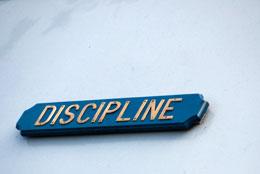Spanking leads to resentment, say parents, experts

Photo caption: Alden Habacon, a father of two, says that after watching a documentary that made a correlation between spanking and prison incarceration, he was convinced not to spank his two sons./ Photo Credit: Ibai via Flickr CC
By Florence Hwan
Special to The Post
Immigrants not only have to learn a new language when they arrive in Canada, but also adopt the values of Canadian society. This can often impact their parenting methods.
“This is part of how we should be settling new immigrants into our community,” says social worker Gary Direnfeld, who has 33 years of experience and works out of Dundas, Ontario. “I’m of the view that there should be a structured approach to that. More often it’s kind of a haphazard approach. They have to pick [parenting methods] up almost by osmosis and trial and error.”
With the Liberal government contemplating revoking Section 43, the corporal punishment section of Canada’s Criminal Code, otherwise referred to as the “spanking law”, some immigrants to Canada may be forced to rethink their parenting methods.
Separating discipline from anger
Alden Habacon is the founder of Schema Magazine, an online magazine described as “a blend of pop culture and identity for the interculturally-minded.” He was born in Manila, Philippines and raised in western Canada.
He refers to an International Parenting study that examined “criminality trends” of over 11,000 university students in 15 different countries, showing that spanking was associated with higher rates of criminal behaviour.
He says that after watching a documentary that made a correlation between spanking and prison incarceration, he was convinced not to spank his two sons.
“The documentary found that spanking actually leads to more violent behaviour as an adult,” he explains. “That all incarcerated men were spanked. True? I don't know. But it won me over.”
He has told immigrant parents that it is hard to separate discipline from anger when using spanking.
“Spanking does not necessarily teach children about the consequences of their actions,” he says. “What it does demonstrate to them is physical violence [causing pain] is acceptable in some circumstances.”
While Habacon says there might be a "right way" and “wrong way” to spank children, he wonders if it is worth the risk.
“Are you disciplining or just acting out in anger towards someone who has no defence? Hard to know when you are overwhelmed with emotion,” he points out.
The choice not to spank
Clara Chung Der, who was born in Malaysia, remembers being spanked until she was about 11 years old. She vividly recalls having to either stick out her hand for ‘lighter punishment’ or pull down her pants and lie over the edge of the bed, face down, for more severe ones.
“I remember feelings of fear and anger towards my mom and because she is not one to work through emotions,” says Chung Der, who now has four children and lives with her family in Regina, Saskatchewan. “It took me a long time to resolve the resentment, which is one of the main reasons I do not spank my kids.”
Chung Der once tried spanking her eldest daughter when she was a toddler.
“I was angry and frustrated with her actions and did not know how else to communicate for her to stop, so I slapped her arm, which took her by surprise and she ended up laughing, which woke me up to my actions,” she says. “We decided then, we did not want to resort to a 'violent' act to communicate with our kids.”
Now, she and her husband parent based on being relational with their children.
Using strategies that don’t shame
Direnfeld agrees that spanking can run the risk of children becoming resentful for being shamed or being hurt by their parents.
He notes that while spanking seems to correct the child’s behaviour, they may act out in different ways.
“So instead of being openly defiant, maybe now I steal from your purse. So superficially the parent thinks I’ve dealt with it,” he says.
He adds that corporal punishment can create a new set of behaviours for parents to correct.
“Now this child goes to school and somebody offends the child, and the child believes, ‘If my parents can hit me, then certainly I can hit another child,’” says Direnfeld. “So we’re inadvertently role-modelling behaviour that clearly, if acted upon by the child, is going to be deemed inappropriate.”
He recommends using other strategies that don’t shame, demean or hurt the child, but continue to hold the child accountable.
“Strategies could be loss of privilege, time-out, restitution, returning something or doing something on behalf of the party that was hurt, apologizing, talking with the person who may have been hurt or offended so that the offender better appreciates the impact of their actions on others and can develop empathy – you don’t get any of that from a smack on the rear end,” he says.
When parents spank their children, they lose opportunities to teach children lessons and learn about the impact of their behaviour on others.
“It’s what the child internalizes in what we call a conscience that facilitates the best behaviour,” Direnfeld adds.
This is the third and final part of our series on spanking and what it means for new Canadian parents.
This piece was originally published in newcanadianmedia.com. See http://www.newcanadianmedia.ca/item/33396-spanking-immigrant-parents-weigh-in









